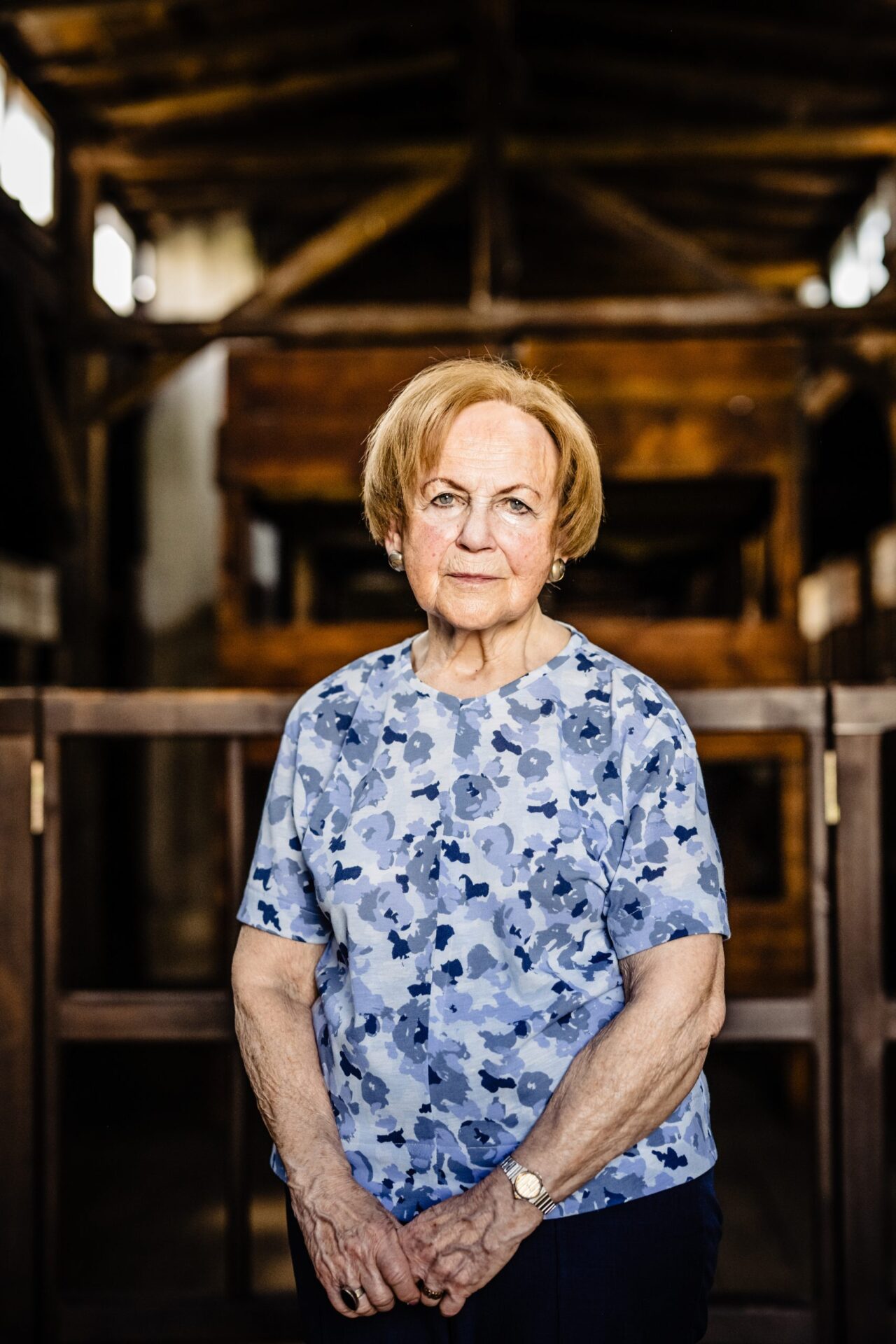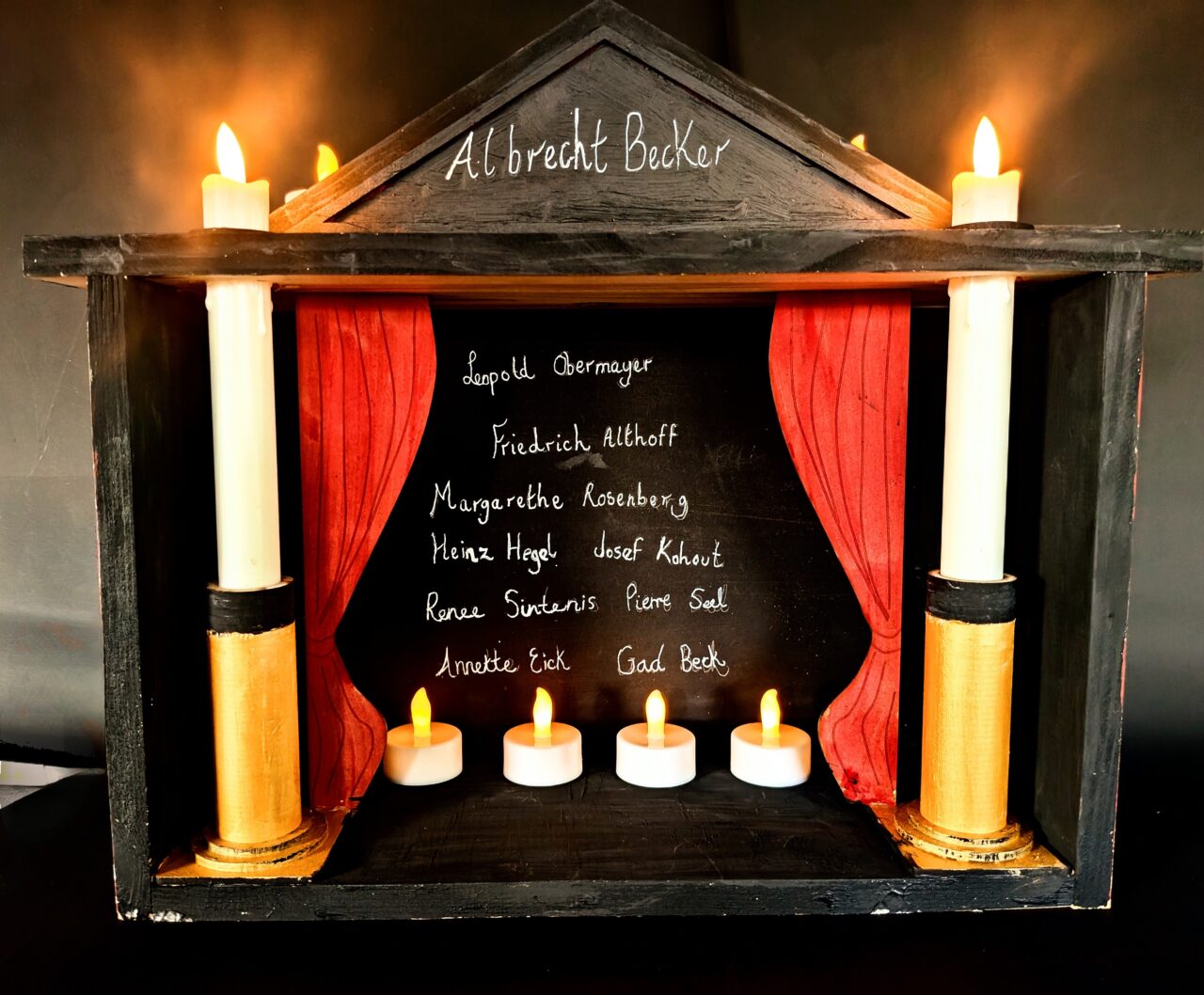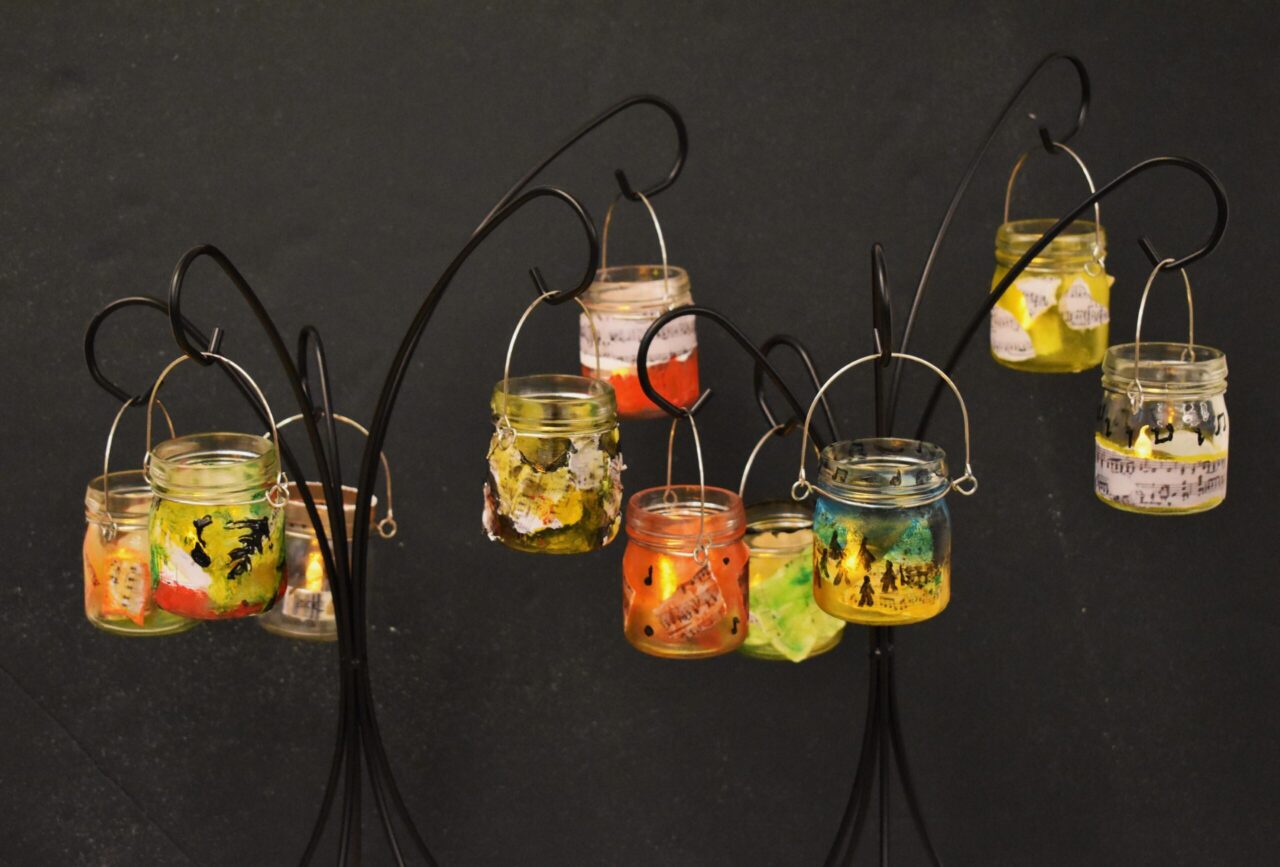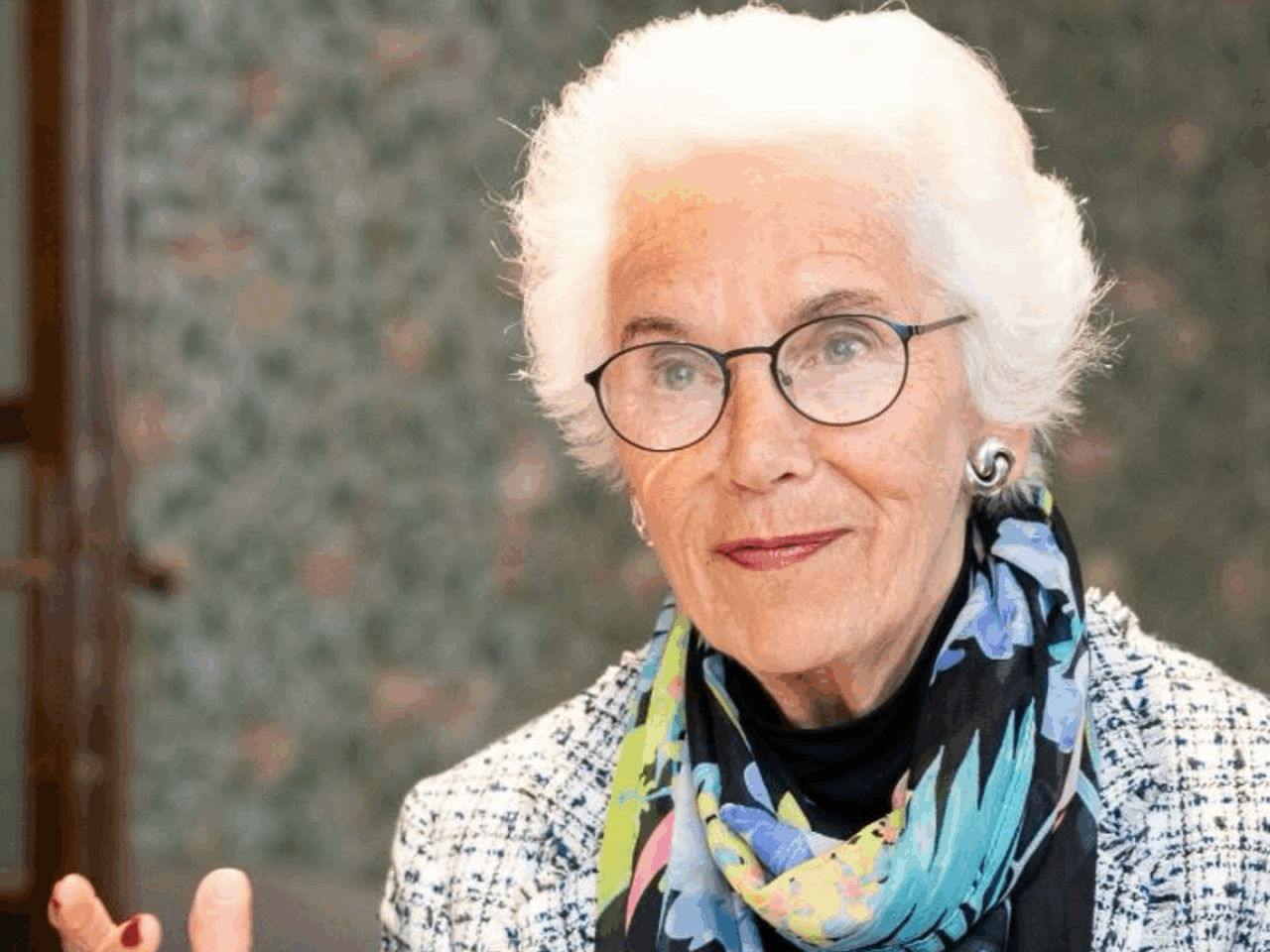
Eva Clarke BEM
Eva Clarke BEM was born under unimaginably harrowing circumstances in the final days of World War II. Her birth, on 29 April 1945, just outside the gates of the Mauthausen concentration camp in Austria, came just one day after the Nazis had run out of gas for the chambers and less than a week before liberation by the US Army.
When the Nazis discovered my mother’s pregnancy, they made my parents sign a document saying the baby would have to be handed over to be euthanised/killed.
She was one of only three babies born in Mauthausen who survived the Holocaust. Today, Eva is a tireless advocate for Holocaust remembrance and education, lending her voice to the ongoing fight against antisemitism and any form of racial prejudice.
To understand more about Eva, we begin in 1933, the year Adolf Hitler rose to power in Germany. As the Nazi regime began persecuting Jews, her father, Bernd Nathan – an architect – fled Hamburg for Prague. There, he met Anka Kauderova, a university law student. They married on 15 May 1940 in Czechoslovakia, which was already under Nazi occupation; their time together would be painfully short.
In December 1941, the couple were deported to Terezín (Theresienstadt), a transit and concentration camp in Czechoslovakia – solely because they were Jewish. For three years, they witnessed the deportation to Nazi death camps of the elderly, the sick, the pregnant, mothers with young children and people with disabilities. Bernd and Anka – young and healthy – were forced into hard labour. Anka managed to secure a job distributing food, enabling her to steal small scraps for 14 family members also imprisoned in the camp. Tragically, all 14, including Eva’s father, three grandparents, her two sisters and eight-year[1]old nephew Peter – were later murdered at Auschwitz. Despite the strict separation of men and women at Terezín, Eva’s parents managed brief, secret meetings – acts of love and defiance in a place built to dehumanise. During one of these times, Anka became pregnant. Eva’s brother Jiri (George) was born in February 1944 but died two months later of pneumonia. Eva often reflects on the irony that had Jiri lived, she would not have been born: Anka arriving at Auschwitz with a baby would have meant death for both.
Instead, Anka arrived alone. Though pregnant again – this time with Eva – the signs did not yet show, and she was selected for forced labour, deported to an armaments factory in Freiberg, near Dresden. There, she endured six months of hard labour, growing weaker as her pregnancy advanced. Years later, a curious 12-year-old Eva asked her mother how she had conceived in such conditions. “It was very dangerous”, Anka replied. “But your father and I got together secretly as and when we could – and to hell with the consequences, end of story”. But it had very serious consequences.
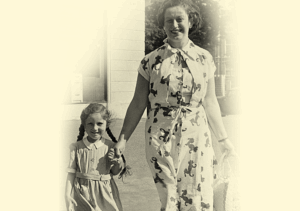
Anka with Eva
When the Nazis discovered my mother’s pregnancy, they made my parents sign a document saying the baby would have to be handed over to be euthanised/killed. In October 1944, Bernd was deported to Auschwitz before Anka could share the news of her pregnancy. In desperation, she volunteered to follow him, unaware of where he had gone. They never saw each other again. Anka later learned Bernd had been shot on a death march on 18 January 1945 – just days before Auschwitz’s liberation. In April 1945, as the Nazi regime collapsed, Anka – nine months pregnant – was forced onto a coal truck with thousands of other prisoners. She endured a 17-day journey without food and barely any water. Weighing only 35kg, she described herself as a ‘pregnant skeleton.’ At one stop, a local farmer offered her a glass of milk – a gesture she believed saved both her and her unborn child and this was in defiance of the Nazi officer brandishing a whip. When the train reached Mauthausen, Anka went into labour – likely triggered by recognising the name of the camp. Unlike Auschwitz, which she had not known before, Mauthausen’s brutal reputation was well-known. Pulling herself off the train and onto a cart, she gave birth to Eva, who weighed just three pounds (1.3kg)
After the war, Eva and her mother returned to Czechoslovakia and lived with Anka’s cousin, Olga, another survivor, for three years. Learning of Bernd’s death soon after the war, Anka remarried in 1948 to Karel Bergman. The family soon emigrated to the United Kingdom, settling in Cardiff, where Eva began a new life far from the horrors of her mother’s wartime experiences. One day, returning from school, Eva noticed that one of her mother’s bags bore the initials ‘AN’ – Anka Nathan – whereas Eva’s surname was Bergman. Curious, she asked about it. That simple question opened the door to a painful truth: her biological father had been murdered during the Holocaust. From then on, her mother spoke openly, always in a way Eva could understand. Eva treasures her mother’s honesty, believing it gave her the strength to later share their history with others.
After finishing school in Cardiff, Eva moved to London. She had first met her husband, Malcolm, as a teenager in Cardiff. The couple later married and settled in Cambridge, r
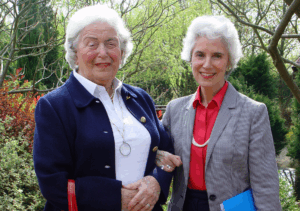
Anka and Eva in Cardiff
aising two children. In 2000, Eva began publicly sharing her mother’s experiences. A strong supporter of the Holocaust Memorial Day Trust, she is driven by the belief that the lessons of the Holocaust must never be forgotten. In 2019, Eva was
awarded the British Empire Medal (BEM) for her dedication to Holocaust education. Her birth certificate, a testament to life born amid atrocity, is displayed at the Holocaust Galleries of the Imperial War Museum in London – reminding all who see it that even in the darkest times, life endured.
